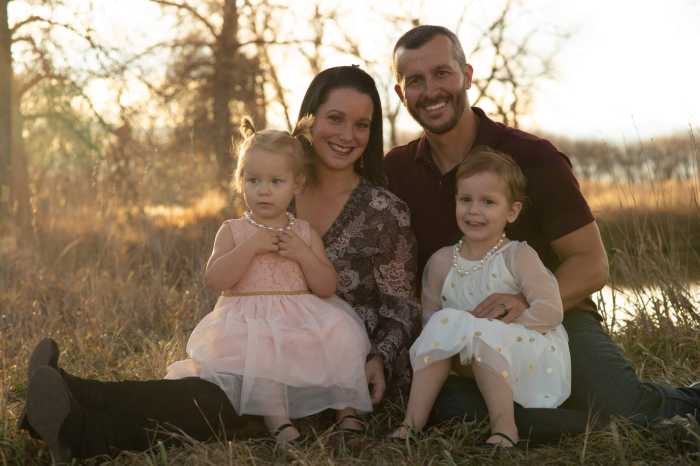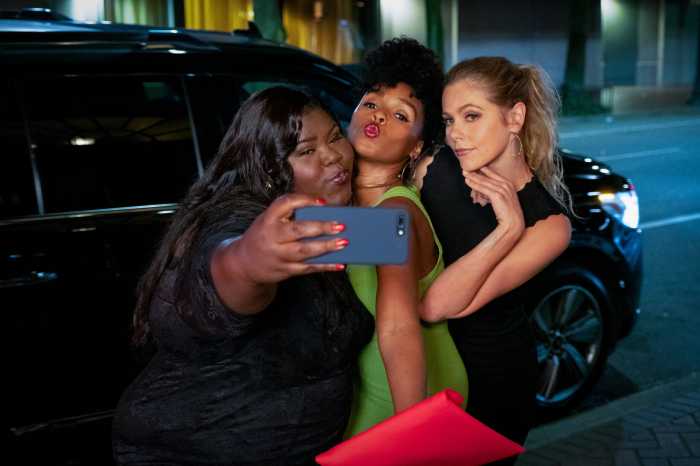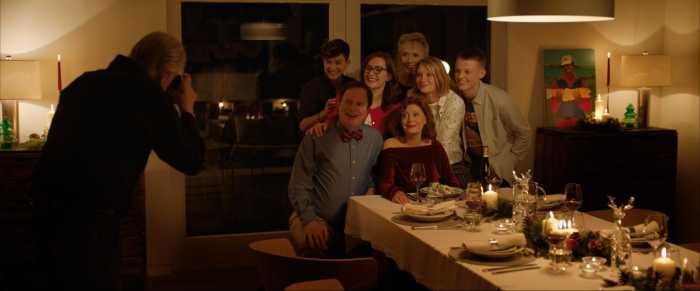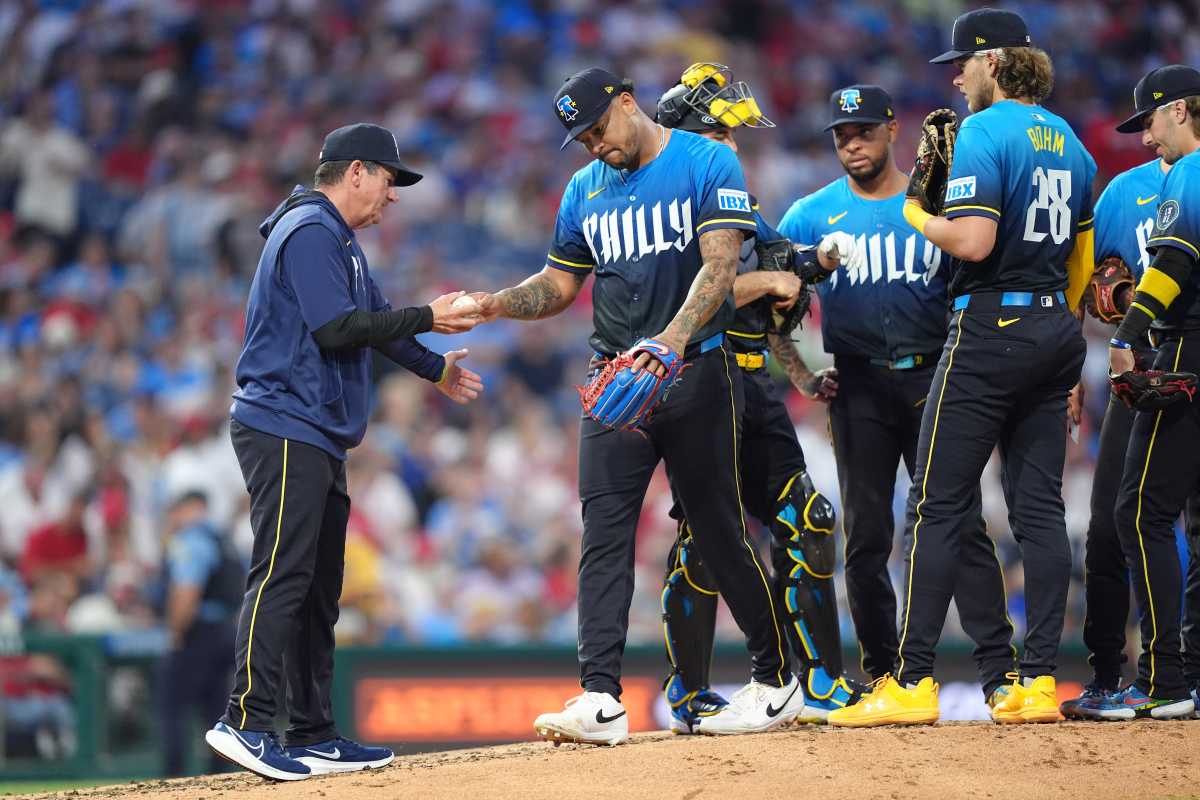Dolph Lundgren, Scott Adkins and a crew of desperate characters are all on the hunt for stolen money inside a building timed for destruction in the latest action-packed feature, “Castle Falls.” Directed by Lundgren, the story centers on people who are in desperate situations and audiences get to see firsthand what they will do for money.
But the action, the fight scenes, the stunts and even the explosions wouldn’t make a difference if there weren’t reasons behind the greed and motivations behind the journey. To help build that, Lundgren worked on the script and his own character (Richard Ericson) to make this movie feel high stakes, even with a low-budget 17-day shoot during COVID. And it’s the transformation that the main character (Adkins’ Mike Wade) realizes that drives it all home: It isn’t all about what you do for yourself, it’s also what you do for others that’s important in life. Even in an action film.
Lundgren sat down to talk more about what went into making “Castle Falls.”
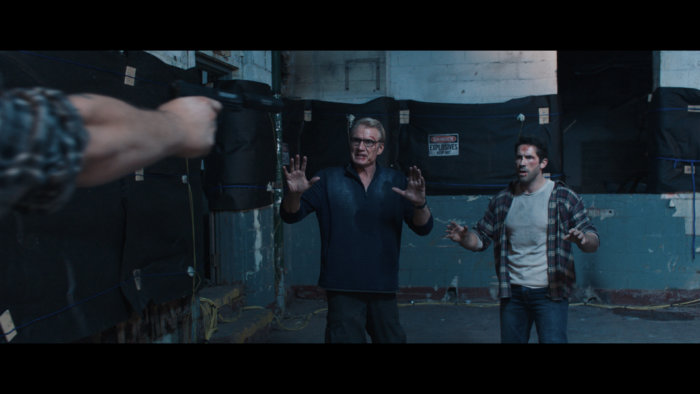
What was it about this story that made you want to sign on to direct and act?
I had a project with Scott Adkins that fell through so I was looking for a two-hander. I read the script, it’s sort of what it is now but there weren’t really two leads. I had to develop [my character] a little more and give both of these people a backstory that was more human and a little more down to earth. Then, I liked the fact that it was unity of a time and a place and that it was [mainly] one building. It was a ticking clock, 90 minutes in the movie, and towards the end it’s real time… I liked all of those factors that made it possible to make the film in 17 days. It was quite difficult [during COVID], but those story points made it easier.
What can you tell me about your character?
I wanted to give my character some hard decisions to make. Look, you’re law enforcement and now your daughter is sick and you kind of have to get your hands in some dirty money… you’re not really hurting anyone from stealing it, but you’re still stealing it and you could end up going to the same jail you’re working at. I wanted to find stuff that made it interesting for me as an actor as well. Scott’s the lead, and his character goes through the transformation, whereas my character is just desperate.
Does having acting experience help you as a director?
I needed all the experience I had on this picture to be able to get stunts done and to get the dramatic scenes shot and to not overshoot or waste time on it and still get the performance. It was a tough shoot during COVID. On a script level, you think some things work, but you don’t have time to figure it out when you’re shooting, you just shoot it. So with post, I had to hatch a bunch of things together that weren’t working to tweak the story and keep the pacing going, things like that.
What about stunts and fighting scenes, what goes into working on those sequences specifically?
The reason I got Scott Adkins and the reason it worked — he’s played an MMA fighter. Story point wise, he is able to fight and throw kicks and punches and knees, so you don’t have to stretch the imagination too much. Also, he’s a very good fighter and he can do long, 30-second takes and he won’t mess it up. We have the choreographer he works with from Europe, but he couldn’t make it to America because of COVID, but he would design the fights and Scott would rehearse. Then we had a very good operator — another stunt guy — who works in the Marvel movies and he can anticipate everything. We were lucky [with] Scott’s skills and because we hired people who could fight.
You mentioned earlier developing more back stories for the characters, why is that important to you?
My taste in movies are some of Clint Eastwood’s pictures that are entertaining and fun, but, they are serious and there is depth to them and the characters are real people. Whether it’s “Gran Torino” or “Unforgiven,” he’s very good at doing that. The more you build a backstory, whether it’s in the script or as a director, the more layered the performance becomes. When you show up on set with your cameras, if you don’t really own it, then you try to make something happen… but if you don’t really have work on it for a few months then you don’t really have to try so hard, it makes it easier for the directors and actors. I like to write backstories for all the main characters and then the actors can change them. Somebody said: In real life nothing is general, you’re very specific… only actors are general. That’s why I like the backstories, I think it’s very important.
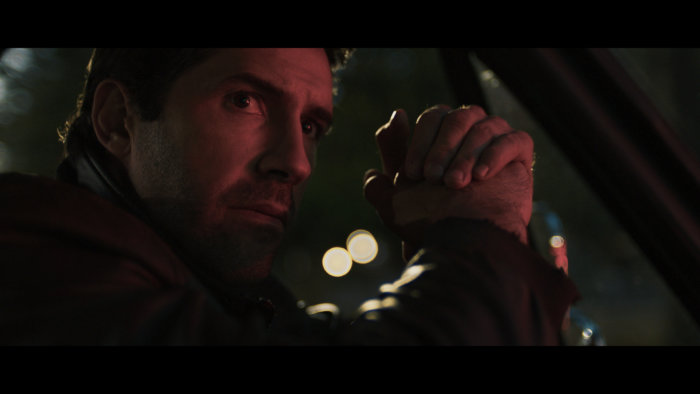
That makes sense and the first character that comes to mind with that idea is Drago. We see more of him in “Creed” and you understand his backstory even more.
You know even when I played the first movie as a kid, I was lucky I had this Russian director who was my dialogue coach, he also helped me with my performance. He helped me work on the fact that this guy has been training since he was a kid. He had nothing to say, the Soviet union picked him and he had nothing to say about it. Some of the things that Drago did like kill Apollo — he didn’t really want to do it. So, you get a subtle feeling he’s not the driving force… he’s Frankenstein’s monster. That’s why that character started out playing as a bad guy, but then you see. In real life you try to figure out what somebody’s about, [whereas] on film it’s what you’re thinking and saying.
“Castle Falls” will be available in theaters, on demand and digital Dec. 3




